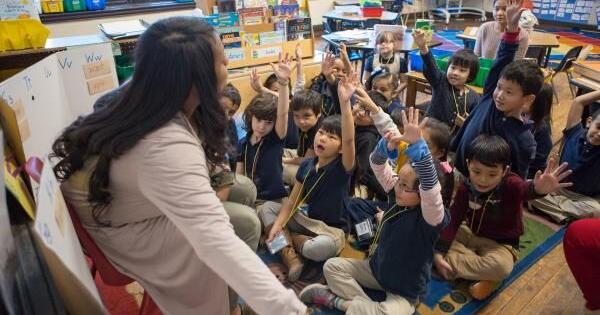The Need for Increased Afterschool Programs in the United States
October 21, 2025 | by magnews24.com

A recent study indicates a robust satisfaction rate among parents involved in afterschool programs, revealing that 95% express contentment with the services their children receive. This finding highlights the critical role these programs play in the lives of families across the United States. However, despite such positive feedback, the research underscores a significant gap between demand and availability. In all 50 states, families, particularly those from middle- and low-income backgrounds, face substantial barriers in accessing these vital resources.
Afterschool programs provide essential support for working families, offering a safe environment for children while parents are at work. They foster academic development, social skills, and physical activity, contributing positively to a child’s overall well-being. In light of these benefits, the study reveals overwhelming public support for increased government funding in this sector. Many parents advocate for enhanced financial investment in afterschool initiatives, emphasizing their potential to enrich children’s lives and ease the burdens on working families.
Nevertheless, the gap between the high demand for such services and the lack of accessibility remains a pressing concern. The study highlights that a significant portion of families who desire afterschool programs cannot enroll their children due to a shortage of available slots, particularly in low-income neighborhoods. This unmet demand not only contributes to ongoing disparities in educational opportunities but also affects families’ capacity to balance work commitments with their children’s care needs.
To address this issue, stakeholders, including policymakers and community organizations, must prioritize the expansion of afterschool programs. By increasing funding and support for these services, there is potential to enhance accessibility and inclusivity, ensuring that more children have the opportunity to participate. Furthermore, such initiatives can be instrumental in narrowing the achievement gap that affects economically disadvantaged students.
As discussions surrounding afterschool programming and funding continue, it is crucial for communities to advocate for strategies that will effectively address these disparities, ultimately fostering a democratic commitment to educational equity. Parents, educators, and policymakers must work collaboratively to ensure that every child has the opportunity to thrive in a supportive and enriching afterschool environment.
RELATED POSTS
View all



